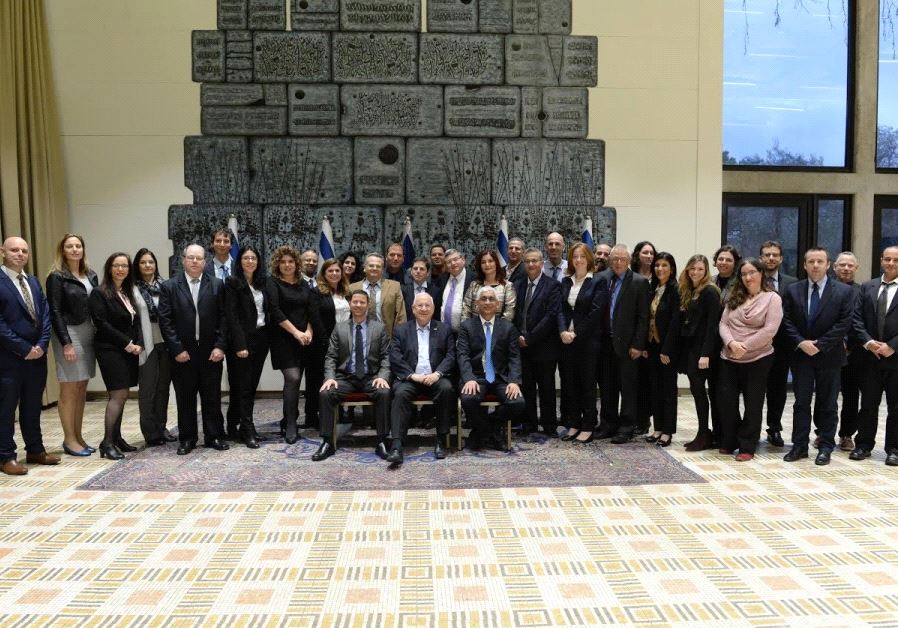Pioneer graduates of College for Senior Civil Servants meet with Rivlin
The pioneer graduates of the first class met with President Reuven Rivlin on Thursday after completing a 10-month course.
 Pioneer graduates of College for Senior Civil Servants meet with Rivlin(photo credit: MARC NEYMAN/GPO)
Pioneer graduates of College for Senior Civil Servants meet with Rivlin(photo credit: MARC NEYMAN/GPO)